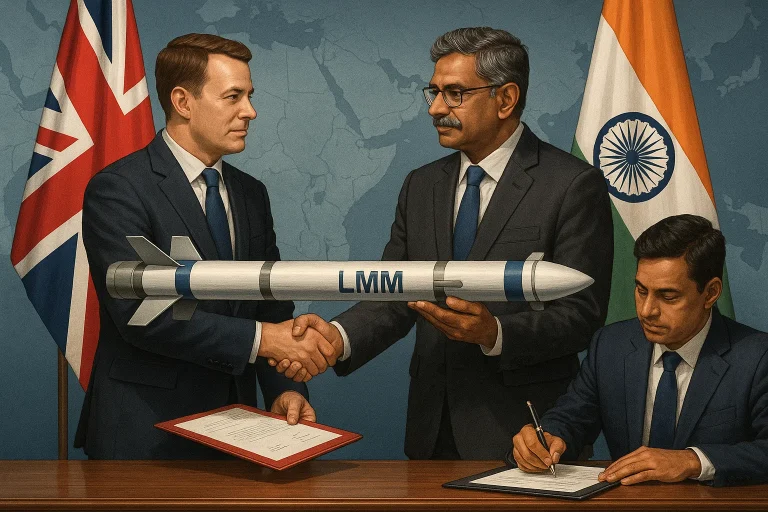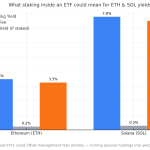The UK and India have just inked a major $468 million missile deal, a big milestone for both countries’ defence ties and a clear sign of Britain’s growing focus on the Indo-Pacific.
Announced during Prime Minister Keir Starmer’s first official visit to India, the agreement will have UK defence giant Thales supplying Lightweight Multirole Missiles (LMMs) to the Indian Army.
The production will take place in Northern Ireland, and the project is expected to support around 700 jobs in the UK.
UK-India missile deal: Strategic significance
The £350 million ($468 million) deal marks a fresh chapter in UK–India defence relations, building on wider efforts to boost trade and security ties in the post-Brexit era.
These Lightweight Multirole Missiles (LMMs) are designed for flexibility, as they can be deployed across various platforms and are expected to enhance the Indian Army’s ability to counter both air and surface threats.
It’s a timely move, given how quickly the power dynamics in the Indo-Pacific are changing.
Building the missiles in Northern Ireland is set to give the UK’s economy a nice boost, helping protect hundreds of skilled manufacturing jobs and showing the government’s commitment to supporting regional industry.
The timing of the deal, coming as Prime Minister Starmer reaches out diplomatically to New Delhi, makes it clear that both sides are serious about taking their partnership beyond just words.
This isn’t a symbolic handshake; it’s about long-term industrial collaboration and deeper security ties.
For India, getting these advanced UK-built missiles is a big move toward modernizing its military and diversifying where its weapons come from.
It also helps close some crucial capability gaps, something that’s especially important now, with rising border tensions and growing competition in the region.
What does it mean for Britain’s Indo-Pacific ambitions?
This missile deal is a standout example of Britain’s post-Brexit push to take on a more active role in the Indo-Pacific security landscape.
As the UK looks for new economic and strategic partners beyond the EU, strengthening defence ties with India fits right into that vision.
It’s part of London’s broader effort to position itself as a serious player in regional security and a reliable part of global defence supply chains.
The deal also acts as a counterbalance to China’s expanding military power and influence across South and Southeast Asia.
By deepening its defence partnership with India, a major player in the Quad and a key voice in Indo-Pacific security circles, the UK isn’t just securing a valuable trade partner.
It’s also making a clear statement about its commitment to upholding a rules-based order and maintaining balance in the region.
The geopolitical experts echoed the sentiment as Professor Harsh V. Pant, Vice President at the Observer Research Foundation, in an exclusive interview with Invezz, spoke about how “the UK is moving towards an Indo-Pacific tilt,” and it is visible in its ties with India.
The post What $468 million UK-India missile deal says about Britain’s Indo-Pacific goals appeared first on Invezz



